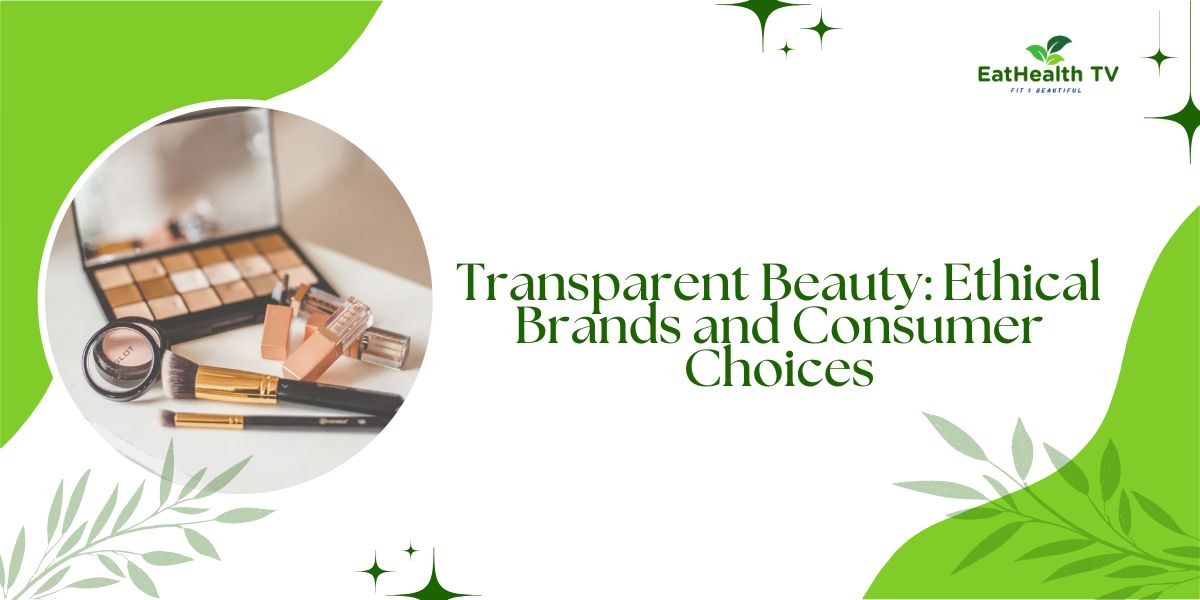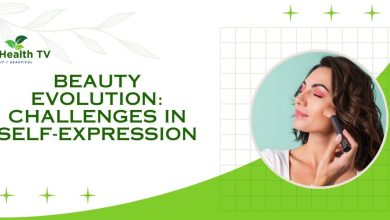Transparent Beauty: Ethical Brands and Consumer Choices
Discover the Power of Ethical Choices: Transform Your Beauty Routine

Transparent Beauty: Ethical Brands and Consumer Choices
In the modern age, consumers are becoming increasingly conscious about the products they use and the impact these products have on the world. This shift is particularly noticeable in the beauty industry, where the demand for ethical brands and transparent beauty practices is on the rise. “Transparent beauty” refers to brands that prioritize ethical practices, sustainability, and openness about their ingredients and processes. This comprehensive guide will explore the concept of transparent beauty, highlight ethical brands leading the way, and provide insights on how consumers can make informed, ethical choices.
Understanding Transparent Beauty
What is Transparent Beauty?
Transparent beauty is an approach in the beauty industry that emphasizes honesty, sustainability, and ethical practices. Brands that adhere to transparent beauty principles are committed to providing consumers with clear and accurate information about their ingredients, sourcing, manufacturing processes, and overall environmental impact.
The Importance of Transparency in Beauty
Transparency in the beauty industry is crucial for several reasons:
- Consumer Trust: When brands are open about their practices, it builds trust with consumers. Transparency allows consumers to make informed decisions and feel confident about the products they are using.
- Health and Safety: Knowing the ingredients in beauty products helps consumers avoid harmful chemicals and allergens. Transparent beauty brands often avoid toxic substances and prioritize safe, natural ingredients.
- Environmental Impact: Transparency in sourcing and manufacturing practices ensures that brands are minimizing their environmental footprint. Ethical brands often focus on sustainability, reducing waste, and using eco-friendly packaging.
- Ethical Practices: Transparent beauty brands are committed to ethical practices, including fair labor, cruelty-free testing, and supporting local communities. This ensures that the beauty industry is contributing positively to society.
Key Principles of Transparent Beauty
Transparent beauty encompasses several key principles:
- Ingredient Transparency: Clear labeling of all ingredients used in products, including potential allergens and synthetic chemicals.
- Sustainable Sourcing: Ethical sourcing of raw materials, ensuring that resources are obtained in a way that does not harm the environment or exploit workers.
- Eco-Friendly Packaging: Use of sustainable, recyclable, or biodegradable packaging materials to reduce environmental impact.
- Cruelty-Free Practices: Commitment to cruelty-free testing methods, ensuring that no animals are harmed in the production of beauty products.
- Fair Trade: Supporting fair trade practices that ensure fair wages and working conditions for workers involved in the production process.
Ethical Beauty Brands Leading the Way
Lush Cosmetics
Lush is a pioneer in the transparent beauty movement. Known for its fresh, handmade products, Lush prioritizes ethical sourcing, cruelty-free practices, and minimal packaging. Their commitment to transparency is evident in their clear labeling and extensive information about ingredients and sourcing practices available on their website.
The Body Shop
The Body Shop has long been an advocate for ethical beauty. They have a strong commitment to cruelty-free practices, sustainable sourcing, and fair trade. The Body Shop also actively campaigns for social and environmental causes, making them a leader in the transparent beauty movement.
Drunk Elephant
Drunk Elephant is a skincare brand that emphasizes ingredient transparency and clean beauty. They focus on formulating products without the “Suspicious 6” (essential oils, drying alcohols, silicones, chemical sunscreens, fragrances/dyes, and SLS) to ensure safety and efficacy. Their transparent approach has garnered a loyal following. Just as we know How is Cultural Identity Shaping Beauty Standards?
Tata Harper
Tata Harper is renowned for its 100% natural and non-toxic skincare products. The brand grows many of its ingredients on its own farm and is transparent about its sourcing and manufacturing processes. Tata Harper’s commitment to sustainability and transparency sets a high standard in the beauty industry.
RMS Beauty
RMS Beauty focuses on organic and natural beauty products. The brand is transparent about its ingredients and emphasizes the use of raw, food-grade, and organic materials. RMS Beauty’s commitment to clean beauty and ethical practices makes it a favorite among conscious consumers.
Herbivore Botanicals
Herbivore Botanicals is dedicated to creating plant-based, cruelty-free skincare products. They are transparent about their ingredient sourcing and formulation processes. The brand also uses sustainable packaging, further enhancing its commitment to transparent beauty.
Making Ethical Consumer Choices
Reading Labels and Understanding Ingredients
One of the most important steps in making ethical consumer choices is understanding product labels and ingredients. Here are some tips:
- Look for Clear Ingredient Lists: Ethical brands will provide a full list of ingredients on their packaging or website. Avoid products with vague terms like “fragrance” or “perfume,” which can hide harmful chemicals.
- Research Ingredients: Familiarize yourself with common harmful ingredients like parabens, sulfates, and synthetic fragrances. Use resources like the Environmental Working Group’s Skin Deep database to check the safety of ingredients.
- Check for Certifications: Look for certifications like USDA Organic, Fair Trade, Leaping Bunny (cruelty-free), and ECOCERT, which indicate that a brand adheres to certain ethical and sustainability standards.
Supporting Sustainable Packaging
Sustainable packaging is a crucial aspect of transparent beauty. Here’s how you can support it:
- Choose Recyclable Materials: Opt for products packaged in recyclable materials like glass, aluminum, and certain plastics.
- Look for Minimal Packaging: Brands that use minimal packaging reduce waste. Some brands offer refillable options to further minimize environmental impact.
- Avoid Single-Use Plastics: Reduce your use of single-use plastics by choosing products with eco-friendly packaging alternatives.
Embracing Cruelty-Free Beauty
Supporting cruelty-free brands is essential for promoting ethical practices in the beauty industry. Here’s how you can contribute:
- Look for Cruelty-Free Labels: Certifications like Leaping Bunny and PETA’s Beauty Without Bunnies indicate that a brand does not test on animals.
- Avoid Brands with Animal Testing: Research brands and avoid those that still use animal testing. Support companies that have committed to cruelty-free practices.
- Spread Awareness: Educate others about the importance of cruelty-free beauty and encourage them to make ethical choices.
Advocating for Fair Trade
Fair trade practices ensure that workers are paid fair wages and work in safe conditions. Here’s how to support fair trade beauty:
- Look for Fair Trade Certifications: Certifications like Fair Trade Certified and Fair for Life indicate that a product supports fair trade practices.
- Support Brands with Ethical Sourcing: Choose brands that are transparent about their sourcing practices and support fair trade.
- Educate Yourself and Others: Learn about the impact of fair trade and spread awareness about its importance in the beauty industry.
Making Conscious Purchasing Decisions
Making conscious purchasing decisions involves considering the broader impact of your beauty choices. Here’s how:
- Research Brands: Before purchasing, research brands to ensure they align with your values of transparency and ethical practices.
- Buy Less, Choose Well: Adopt a minimalist approach to beauty by buying fewer, high-quality products that are ethically produced.
- Support Local and Indie Brands: Local and indie brands often have a smaller environmental footprint and may prioritize ethical practices.
The Future of Transparent Beauty
Innovations in Sustainable Beauty
The future of transparent beauty lies in continued innovation and commitment to sustainability. Here are some emerging trends:
- Zero-Waste Beauty: Brands are increasingly adopting zero-waste practices, offering products with minimal or no packaging.
- Waterless Beauty: Waterless beauty products, which use little to no water in their formulation, are becoming popular for their sustainability benefits.
- Biodegradable Packaging: Innovations in biodegradable packaging materials are reducing the environmental impact of beauty products.
Increased Consumer Awareness
As consumers become more aware of the importance of transparency and ethical practices, the demand for transparent beauty will continue to grow. This increased awareness will drive brands to adopt more ethical and sustainable practices.
Regulatory Changes
Regulatory changes may also play a role in the future of transparent beauty. Governments and organizations are increasingly recognizing the importance of sustainability and may implement stricter regulations on ingredient disclosure, packaging, and ethical practices.
The Role of Technology
Technology will play a significant role in the future of transparent beauty. Advances in ingredient tracking, sustainable sourcing, and eco-friendly packaging will enable brands to enhance their transparency and ethical practices.
Conclusion
Transparent beauty is more than just a trend; it’s a movement towards a more ethical, sustainable, and honest beauty industry. By prioritizing transparency, ethical brands are setting new standards for the industry and empowering consumers to make informed, conscious choices. Whether you’re a 12th-grade student or an expert in the field, understanding and supporting transparent beauty is essential for promoting a healthier, more sustainable future. Embrace the principles of transparent beauty, support ethical brands, and make conscious decisions that reflect your values. Together, we can transform the beauty industry and make a positive impact on the world.




